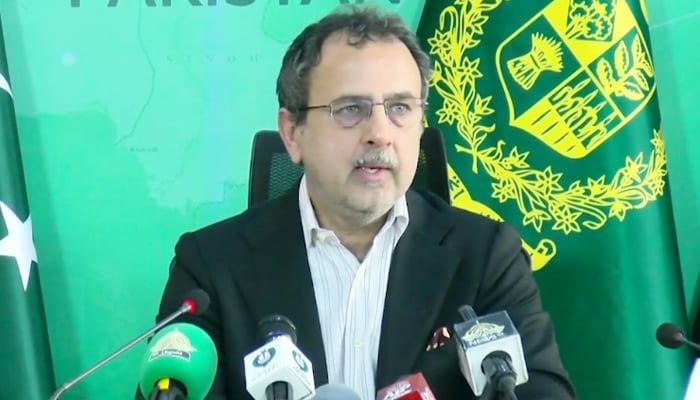
- Regulations on electric vehicle charging stations must be implemented.
- The charging stations will be powered at Rs39.70 per unit.
- Revised agreements with 18 additional IPPs proposed.
Federal Minister for Power Sardar Awais Ahmad Leghari on Wednesday said the Power Division has reduced electricity tariffs for electric vehicle (EV) charging stations by 45 per cent and they will now get electricity at Rs 39.70 per unit, compared to Rs 71 per unit currently.
Addressing a press conference in Islamabad, the minister said that regulations related to electric vehicle charging stations will also be implemented and registration and business will be allowed within 15 days.
He said that under the leadership of Prime Minister Shehbaz Sharif, a special preferential electricity tariff was announced today for electric vehicle charging stations.
Along with this, regulations related to the creation of the first electric vehicle charging stations and battery replacement points in the country’s history were also implemented, he said.
These regulations, the minister mentioned, were implemented under the aegis of the National Energy Conservation Authority, an institution of the Energy Division, for which regular notification in the Official Gazette was also made. published.
The circular debt decreased to Rs12 billion, reaching Rs2.381 billion for the period July to November 2024 while the debt was Rs2.393 billion as of June 30, 2024, Leghari said.
The minister highlighted that the recovery rate for the period from July to November 2024 reached 96%, significantly improving compared to the same period of 2023 thanks to the government’s prudent policies.
Discussions with IPPs
Meanwhile, the minister also revealed that the Energy Division had proposed revised agreements with 18 other independent power producers (IPPs) to the federal cabinet.
Cabinet Committee on Energy approved summary of Energy Division, granting permission for single point power supply to industrial states and special industrial zones, besides authorizing their management to ensure connection, bill collection and other related matters.
The decision was taken to address complaints from industrial zones and special industrial zones regarding the new connections and the billing process.
In this regard, a mechanism is also being developed, which would be implemented by the Power division in the next two to three months.
The minister said the power sector has started reaping the benefits of the measures taken by the Power Division.
According to one estimate, there are currently 10 million motorcycles in the country and they spend $6 billion on fuel annually. By converting these motorcycles to electric technology, which is possible on average for 50,000 people, not only will they make back their entire money in capital savings in three to four months, but billions of dollars will also be saved in terms of valuable foreign exchange.
Similarly, the use of electric technology in three-wheeled vehicles (rickshaws) is also likely to significantly reduce the cost of transportation within the city, which will not only lead to a significant difference in fares but will also help to avoid the cost of harmful gases. , which will help fight air pollution.
Reduced transportation costs
The reduction in transportation costs will also impact the delivery of goods within the city, which will also have a positive impact on the prices of essential commodities.
Through this initiative of the Power division, although on the one hand there is a possibility of positive developments in transportation costs and related issues, a positive business opportunity is also created through the creation of charging stations and battery replacement points on every street.
With a concessional price, authorization to install charging stations or battery points can now be obtained in just 15 days. In this regard, NEECA, a subsidiary of the Power division, has established a one-stop shop and registration can now only be done by visiting the website.
In this regard, to ensure a competitive market and facilitate domestic and foreign direct investments, these regulations have been simplified and the registration fees have also been kept at only 50,000. It is estimated that the implementation of these regulations will allow achieve the target of 30% inclusion of electric vehicles by 2030.
Regulations relating to electric vehicles and battery replacement points support the provision of charging technologies at five different levels.
These regulations provide a level playing field for all global and regional electric vehicle manufacturers. Particular attention has also been paid to the protection of charging stations and battery replacement points and associated measures under this regulation, which will also be regularly monitored and audited.
The issuance of regulations related to preferential electricity tariffs and electric vehicle charging stations will provide new profitable business and investment opportunities, which will not only create new employment opportunities, but also strengthen the overall national economy.
